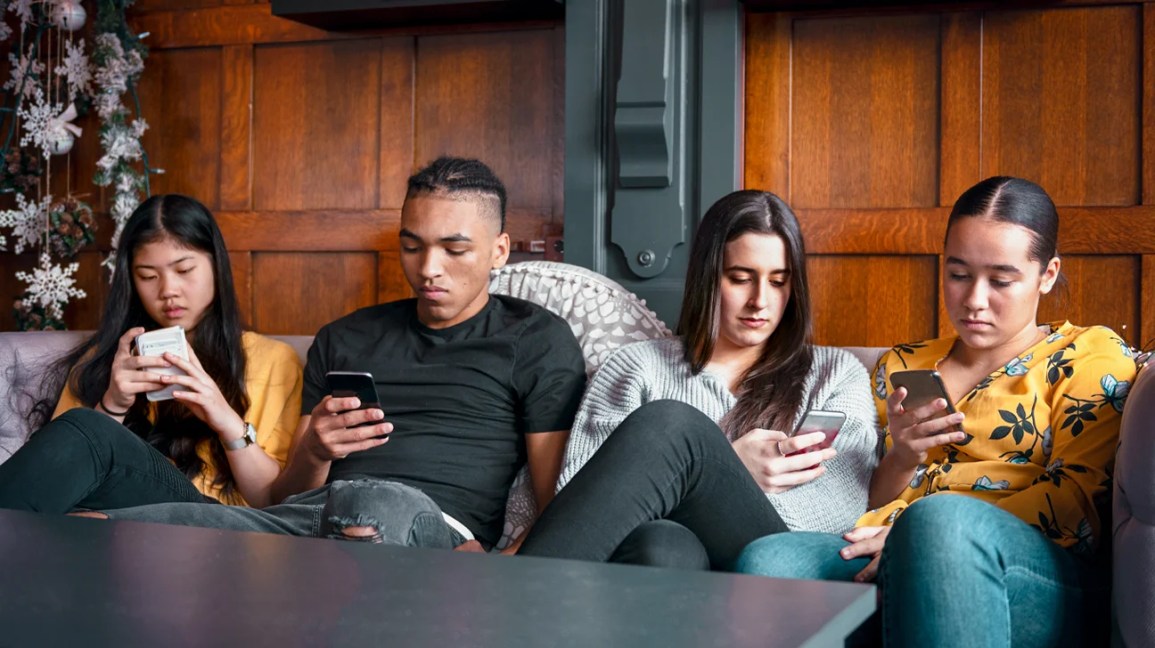8 Alarming signs you’re addicted to Social Media (and how to break free)

Signs you’re addicted to social media. Image Source: Healthline
In a digital world where likes and notifications dominate daily life, social media addiction has quietly become one of the most widespread modern habits. Studies show the average person spends over 2.5 hours daily scrolling, often without realizing how dependent they’ve become. While these platforms help people connect, they can also foster unhealthy behaviors that impact productivity, mental health, and relationships.
Below are eight clear signs you might be addicted to social media, and what each one means for your well-being.
1. You Check Your Phone First Thing in the Morning
If you grab your phone before brushing your teeth or saying “good morning,” that’s a red flag. According to a Pew Research Center study, 70% of adults check social media within 30 minutes of waking up, indicating habitual use rather than intentional connection. This constant need for updates can set a distracted tone for the entire day.
2. You Feel Anxious When You’re Offline
Do you feel restless or anxious when you can’t access social platforms? That’s a common sign of digital withdrawal. Experts compare this behavior to addictive patterns seen in gambling, your brain craves dopamine hits triggered by likes, comments, and notifications.
3. You Measure Self-Worth Through Likes and Followers
When your mood depends on engagement metrics, you’re no longer using social media for communication but for validation. This emotional dependency can lead to low self-esteem and comparison anxiety, especially among young adults exposed to filtered realities online.
4. You Lose Track of Time Scrolling
If a “five-minute scroll” turns into an hour, you’re likely trapped in algorithmic loops designed to keep you hooked. Platforms like TikTok, Instagram, and X use infinite scrolling and recommendation systems to extend user sessions.
Try tracking your screen time, you might be shocked by the results.
READ ALSO
12 Online Privacy Settings Everyone Should Enable
8 ways to boost productivity using Google tool hacks
5. You Constantly Capture Moments Instead of Living Them
When you can’t enjoy a meal, concert, or sunset without recording it, your focus shifts from experience to performance. Studies from The Journal of Experimental Psychology show that people who document experiences excessively tend to remember them less vividly and feel less present.
6. You Prioritize Online Life Over Real Relationships
If you spend more time chatting online than connecting face-to-face, social media may be replacing genuine interaction. Relationship experts warn that this can create emotional distance, reduce empathy, and even contribute to loneliness, ironically, in a world more connected than ever.
7. You Use Social Media to Escape Stress or Boredom
Turning to Instagram or TikTok every time you’re stressed is a sign of avoidance behavior. While scrolling offers temporary relief, it doesn’t solve the underlying issues. Over time, it reinforces dependency as a coping mechanism for negative emotions.
8. You Struggle to Cut Back
The clearest sign of addiction is when attempts to limit your use fail. Whether it’s deleting the app and reinstalling it days later or constantly “checking just one more thing,” the inability to stop indicates a psychological grip similar to substance addiction.
How to Regain Control
Breaking free starts with awareness and boundaries. Set screen time limits, schedule no-phone hours, or practice digital detox weekends. Replacing online habits with offline activities, reading, walking, journaling, helps reset your focus and emotional balance.
Experts recommend tracking your daily use and consciously asking, “Am I using this app, or is it using me?”
FAQ: What to Know About being Addicted to Social Media
Q: What is social media addiction?
Social media addiction is the compulsive use of platforms like Instagram, TikTok, and Facebook, leading to loss of control and negative impacts on daily life, productivity, and emotions.
Q: How do I know if I’m addicted to social media?
You might be addicted if you check your phone constantly, feel anxious when offline, or spend hours scrolling without realizing it. Tracking screen time can help confirm this behavior.
Q: How does social media affect mental health?
Overuse is linked to anxiety, depression, sleep issues, and low self-esteem, especially when users compare themselves to idealized online versions of others.
Q: How can I stop being addicted to social media?
Start by setting screen time limits, disabling non-essential notifications, and scheduling “no-phone” hours. Try replacing screen time with hobbies, exercise, or reading.
Q: What happens when you quit social media?
Users who take breaks often report improved focus, reduced anxiety, better sleep, and stronger real-world relationships.
Q: Is social media addiction real?
Yes. Though not officially classified as a medical disorder, research shows it triggers similar brain pathways as substance addiction, releasing dopamine through constant validation.
Q: How long should I spend on social media daily?
Experts suggest limiting recreational screen time to under 1 hour per day for optimal mental health and productivity.
Q: Can social media addiction be treated?
Yes. Digital wellness programs, therapy, and mindfulness techniques help people manage compulsive use and regain balance in their online habits.

